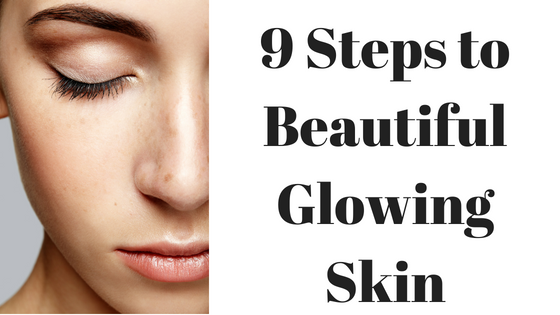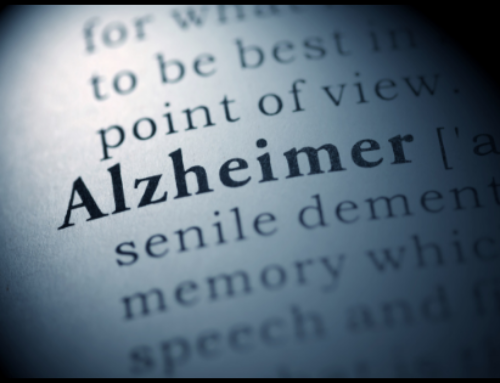Do you know that skin problems are the #1 reason people go the doctor’s office?
Most people are surprised by that, but I see it in my practice all the time.
Your skin is a mirror of your gut and mind. If your diet is poor, your mind is stressed, and you are sleep deprived, the first place you will see the damage is on your skin.
Many try to resolve the problem with expensive pills, creams, and treatments. That solution only leads to a bottomless money pit.
The secret to healthy skin is not what you put ON your body, but what you put IN your body.
You can heal most skin issues by balancing your hormones, changing your diet and healing your gut. The same rule applies whether the issue is acne, eczema, rosacea, wrinkles, weight gain, or rapid aging. Symptoms of pimples, redness, inflammation, and dry skin point to an imbalance that needs to be addressed.
Your body is an amazing miracle. It knows exactly what it needs to survive and thrive. When there is a problem, it sends out an SOS, better known as a symptom. Symptoms are a warning sign there is a problem that needs to be addressed.
Dry scaly patches could signal you have excess insulin in your body. It could also signify low thyroid function. Itchy skin could be a sign of food allergies.
It’s important to pay attention to what your body is trying to tell you and get to the root cause of the problem. It is almost always diet and lifestyle.
Inflammatory omega-6 fatty acids and trans fats that are so prevalent in the Standard American diet are big contributors to skin problems. The Inflammation they cause can trigger everything from mild skin irritation to brain fog, aggressive behavior, anxiety, depression and more. Dermatitis, which manifests as eczema, acne and rashes, almost always signifies excessive inflammation.
When you are willing to get to the root cause of the problem and make the right changes, your body quickly repairs itself and regains balance.
It won’t be long before your skin clears up, and you look and feel better.
Not sure where to start? Here are the 9 key steps to take:
- Stop eating sugar and highly processed foods. Sugar sticks to amino acids present in collagen and elastin, producing Advanced Glycation End products, commonly referred to as AGEs. And that is exactly what they do; age your skin and other organs. It also contributes significantly to other skin issues like acne.
- Identify and Eliminate food sensitivities. Food sensitivities can trigger or exacerbate bad skin conditions. Studies show dairy contributes to acne. Other studies link autoimmune diseases like psoriasis with gluten intolerance. My 28-Day Elimination and Detoxification Program provides an easy way to break free of these and other food sensitivities.
- Take a probiotic and/or eat fermented foods. The health of your gut influences healthy skin far more than you might realize. Probiotics work by adding healthy bacteria to your gut which helps to reduce inflammation and oxidative stress and improve skin conditions like acne. See my Master Supplements page to see which one would be best for you.
- Eat foods that are rich in Omega-3. Dry, itchy, scaling, or flaking skin could indicate a fatty acids deficiency. Eat omega-3 rich foods like wild-caught fish and flaxseed regularly. I also helps to supplement with a high-quality fish oil
- Optimize your nutrient status with high potency multivitamin/mineral.A variety of nutrients play a role in healthy skin. Zinc deficiencies can contribute to eczema, acne and other skin rashes. Studies also find vitamin D can help treat skin problems like psoriasis and acne. Have your vitamin D levels checked in the winter months to make sure you are getting an adequate dose.
- Exercise, sweat regularly and use a skin brush. When your body temperature rises like it does during exercise, blood flow transfers heat form the core of your body to your skin. Sweating helps move and excrete toxins from your body. A sauna or steam bath are another good way to sweat away the toxins in your body. Skin brushing before your hot shower, gently and effectively removes the top layer of dead skin cells and deeply cleanse the pores.
- Get adequate amounts of great sleep. Studies show that chronic poor-quality sleep increases signs of aging and has an adverse effect on the way you look. Aim to get 7-8 hours of solid sleep every night.
- Get a grip on your stress levels. Stress can affect or exacerbate any number of skin disorders including psoriasis. Learn some easy breathing techniques, meditate or find whatever else can help you destress and do it regularly. The more proactive you can be with handling your stress, the easier it is to control.
- Read labels and be careful with anything you apply to your skin. Stop using creams, sun block and cosmetics that contain paraben, petrochemicals, lead or other toxins. Drugs and chemicals are easily absorbed through your skin. Simple rule- If you wouldn’t eat, don’t put it on your skin. For more detailed information, visit the Environmental Working Group web site’s skin products page.
That’s a big list. Don’t get overwhelmed. You don’t need to do everything at once. Any small change you implement will make a difference.
The most critical step you must take is dietary. Discovering and eliminating your food intolerances is a real game changer. It only takes 2 weeks to experience for yourself how powerful this is. The best part is- It really isn’t hard.
Why don’t you let me show you how?
Call today for your free consultation- 866-222-6490.
I look forward to hearing from you.






